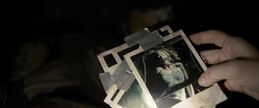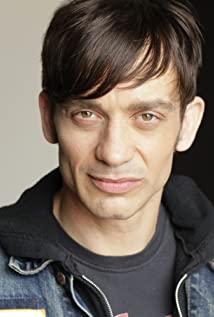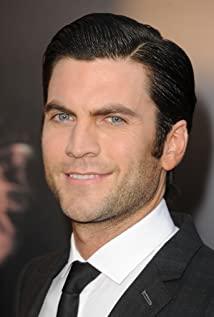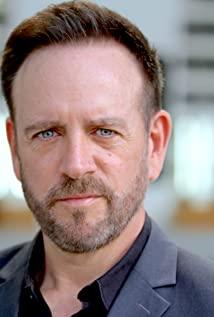watching the movie "Gone" I just watched the movie "Gone" (Chinese translation is "The Trace is Hard to Find"), and I feel it is the best movie I have watched recently. The story of the movie is not complicated: the protagonist (female) was kidnapped and imprisoned (is it familiar?), and later escaped from the cave where she was imprisoned (where the murderer imprisoned, killed and buried multiple victims) . She reported the case to the local police station, and the police launched a search, but nothing was gained. In addition, the protagonist was admitted to a mental asylum (her sister took her out of the hospital) and later lived with her sister because of a mental breakdown after both parents passed away within a month. One day, the protagonist discovers that her sister is missing, and firmly believes that the person who kidnapped her kidnapped her. She went to the police station to report the crime, but the police did not believe her. So, she investigated the case herself, and finally made the case come to light. Interested friends can go to see this movie, if you like Amanda Seyfried (Amanda Seyfried), an actor with eyes as big as "Sailor Moon", don't miss this movie.
The story is over, tell me why I praised this movie. Let me talk about a premise. I am not a feminist myself-I don't mean to say that I am a patriarch, but "feminism" as an imported product under the background of Western language, which is new to postmodernism and environmentalism. His thoughts and behaviors belong to the same pedigree of the time; in other words, leaving the general environment of the Western democratic system, these post-learning and doctrines cannot be talked about, at least shifting to the Chinese context will form the strange phenomenon of southern orange and northern orange.
——Try to give an example: the mainstream ideological trend in American universities is leftist, and leftist scholars criticize the US government for sparing no effort (such as Chomsky, a famous leftist scholar); while China’s “new leftist” learns from the critical grammar of Western leftists. The Western academic circles were treated with courtesy, but at home they continued to criticize the universal values of the West and flattered the system. The "New Left" imitating Western leftist discourse is not helpful or even helpful to the social transformation that China is currently undergoing. As for the original intention of the "New Left", I don't want to care about it. -
in other words, China is not to talk about "feminism" when at least let us have the basic human right to say anything after the "feminist" Before that, we still strive for "human rights" now!
However, Western "feminism" also has a history of about forty years, and at least achieved the discourse status of "political correctness". At that time, when did you care about "political correctness"? When evil wants to trample on the homeland of freedom, there is no "political correctness" at all. What must be done is to use all strength to destroy the totalitarian empire. After the "end of history", the politicians have changed. I am exquisite, using "political correctness" as a retreat for both sides. As everyone knows, history is not over yet! As long as any kind of authoritarian system exists, the world will not be able to achieve permanent peace! I hope that visionary political leaders in the West can understand this as soon as possible. , Democracy in the world, there is still a lot of work to be done). Therefore, some famous female films have a feminist tendency and expression (such as "The End of the Wild Flower"). I think this film also has "feminism". There are a few traces of "ism". Of course, even so, it does not hinder my interpretation of this movie.
The protagonist is a representative or symbol of a disadvantaged group: female, blue-collar, mentally ill, loss of parents, kidnapping... It is obvious that the image of the protagonist is set in this way to make the audience recognize or realize the protagonist’s weak position. After getting used to watching superheroes or heroes on the screen, it is rare to see a weak image like the protagonist in this movie. On the one hand, such a setting can easily make the audience pay attention and sympathy; on the other hand, it also adds dramatic tension to the unfolding of the story.
In the process of investigating the case, the real threat or difficulty faced by the protagonist is not the murderer-the total time the murderer is on the scene is less than a few minutes, and it is almost always vague. I can't help thinking: Does the movie deliberately downplay the image of the murderer? If it does, then my intuition is correct. The film also believes that the dangerous environment the protagonist is exposed to is not caused by criminals—a social abnormal factor—but a normalized social structure composed of authorities such as police and psychiatrists. In other words, compared with the murderer's crimes against the protagonist, the distrust and harm of authorities (police station, mental hospital) towards her is secret and lasting. Even if the protagonist can get rid of the murderer, it is impossible to get rid of the "discipline and punishment" imposed on her by the authority.
Speaking of this, it has to be reminiscent of Foucault. Foucault conducted knowledge archeology and genealogical research on power in modern society. He believed that power is not completely negative. In fact, power contributes the main force in shaping the "person" in the sense of modern society. "Human" became the subject, which was impossible before the 16th and 7th centuries. Even if you don’t talk about an obvious authority like the police station, the mental hospital is also an authority. Foucault’s "The Birth of the Clinic", "The History of Madness" and other works find power through the knowledge and archeology of mental patients. The process of shaping people. Foucault's constant pursuit of power stems from his love for freedom, which has gone beyond the framework of the system and has returned to human nature itself. Foucault is a thinker among thinkers, and his life is more exciting than his thoughts. In his view, power is ubiquitous, either obvious or hidden. People live in power and form an interaction with power.
As a result, the kidnapping case investigated by the protagonist has become a process of dealing with such oppressive forces. The protagonist participates in Sanda training and carries a gun with him (this shows that you must be ready to face life at any time). Contact with strangers in the protagonist: whether it is investigating the case or avoiding the police round up. She almost always used lies, and she told all kinds of lies in the movie. It must be pointed out that in Western civil society, honesty has become a basic norm of civic life, but in this movie, the protagonist has subverted this normal state of public life. This is also the point that led me to think: In a weak situation, what kind of means is used to be consistent with the purpose of resistance? If we admit that means are as important as ends, and in an environment where a system is inclined to a certain group or class, when a conventional means cannot meet the demands, what is the bottom line of action? For example, the protagonist's lying in the movie can be forgiven (at least I can forgive her). However, in reality, this is a more complicated issue. For example, the "non-violent non-cooperation" led by Gandhi and the "civil rights movement" led by King, both of which took place when policies were tilted towards a certain class at the time, abnormal human rights actions. Both have been successful. What needs to be pointed out is that the success of the two is precisely because they are under a democratic system framework. However, human rights demands under non-democratic systems are often violent, and violence has broken through the bottom line of peace; importantly, violence is almost the only way people can choose under an autocratic system. In the process of system transformation, people are provided with choices other than violence. Although the number of mass incidents is increasing each year, they can still see rational choices other than violence (the successful ones are "Guangzhou px ", "Dalian px", etc.). Is it necessary to use violence to complete the system transformation? This is a trade-off and choice between means and ends. If I can express my desires, I certainly hope to use peaceful means to complete the system transformation. The democratic system needs to be achieved by a democratic means; and the important thing is that peaceful transformation requires power to change thinking and means. Otherwise, it can only be A repeat of violence.
As for individuals, how can individuals achieve justice in an environment where they cannot be trusted and cannot rely on any institution? In the movie, the protagonist's methods indeed overflow the bottom line of general public life. In my opinion, the film does not stop at the discussion of the system. It can be said that the film is more inclined to philosophical and sociological discussions, focusing on the weak situation and mental state of the individual in the struggle with social power.
What's interesting is that although the protagonist has been lying in the movie, the people around her are also lying, not in the name of an individual, but in the name of authority. In the movie, the protagonist's psychiatrist cooperates with the police to trap the protagonist and lie to the protagonist, but the protagonist sees through. Let me think: Is lying confined to a personal act? Why is the "lie" spoken by an authority in a power language not a lie? Lies that have always been "propaganda", who will bear the moral cost? I think that authoritative "lie", whether it is the ideology of power, or lies based on the premise of pan-power (economic, scientific, cultural, etc.), will ultimately harm the morality of the entire society. Base. Looking at our history, the lies of the era of monarchy and autocracy, the lies of the era of totalitarianism, and the lies of the present, make people wonder whether our moral stock is close to a deficit.
There is another point in the film that caused me to think. A newly transferred police officer in the police station believed the protagonist, and he also hoped to help the protagonist. However, the protagonist does not believe this "good policeman". In my opinion, the distrust of the underprivileged group in authority is very likely when some enlightened forces in the authority deliberately talk to the underprivileged group, because of the distrust of the underprivileged party, the opportunity for dialogue will be missed. It must be admitted that in history, the opportunity to reverse the direction of society is fleeting. When the power subject is unwilling to make changes, the actions of enlightened forces within power are very limited. If enlightened forces create a small opportunity, Cannot be understood and grasped by the weaker party, then the next step is the double blow of the power subject to the two factions! Sounds a little familiar, doesn't it? Unfortunately, from a certain perspective, this kind of weak opportunity seems unlikely.
Finally, I want to talk about procedural justice and substantive justice. This is also the thought left to me at the end of the film. Substantial justice is much older than procedural justice. It can be regarded as the justice rules that human beings enforce against their own ethnic groups. This can be traced back to the initial state of human society, before the birth of the law. I believe that for those who violate the interests of the ethnic group or the same ethnic group, the ethnic group will punish them according to the degree of guilt. The old saying is common in the old saying "everyone can get it and punish him". Regardless of the specific context, it is obvious that this embodies the spirit of substantive justice. Without a trial by a legal institution, without a prosecutor and lawyers from both parties, one person can be a prosecutor. , Judges, lawyers, and executioners. As for the revolutionary warrior’s final verdict on the negative role in the red movie, "I shot you on behalf of the people", it is a different matter and is not in the discussion.
Procedural justice is closely related to the evolution and perfection of the system. In this regard, the West has gone further than us. Although there were detailed laws in the monarchy era, this kind of law embodies the ideological characteristics of the pre-constitutional era. In a sense, the praise of the "unprofessionals" in folk literature and art is exactly what people praised. Approval and yearning for substantial justice. Paradoxically, in Yang Jia's case a few years ago, the people's support for Yang Jia's opinions seemed to be connected with the ancient pedigree of substantive justice, but this is another discussion.
The establishment of procedural justice is first and foremost the full realization of a society under the rule of law. In other words, the prerequisite for people to give up the implementation of substantive justice is that the rule of law is cheaper and more secure than self-enforcement of justice. This is also one of the signs of the evolution of human civilization. But it must be pointed out that procedural justice is the product of system, while substantive justice is the embodiment of natural law. When procedural justice does not play a role, substantive justice will be activated by injustice and exercise its ancient human functions.
Thinking further, is procedural justice the best embodiment of substantive justice? It can only be said that in the current human experience, procedural justice is the worst choice. Maybe only God has the perfect righteous solution-of course, in heaven, in the world, it is better to use the human system to make do with it.
In the movie, the protagonist finally adopts the method of substantive justice. Even if the movie is fictitious, it still affirms that even in a society under the rule of law, even if procedural justice is generally recognized and accepted, as long as one person suffers unfair treatment , Then, this person naturally has the right to exercise substantive justice.
The sin ends in the fire, the fire is reflected on the face of the protagonist, and justice is done in the world.
After watching the movie, my thoughts fluctuated. In a democratic and legal society, individuals are not protected by the system, and even become victims of the system structure, seeking substantive justice relief. So, in an environment where the rule of law is not sound, and even the rule of law is not fully realized, how can people avoid the repression of power and maintain their dignity? Perhaps, we can learn from the protagonist a quality that we absolutely lack-bravery! I would like to quote Berwickly’s "Speech at the Cemetery of the Fallen Soldiers" again. He said: "There is freedom to have dignity, but to be brave can there be freedom!"
Let us learn to be brave and use bravery for freedom! For dignity!
Written in the afternoon of June 6-9, 2012
View more about Gone reviews











